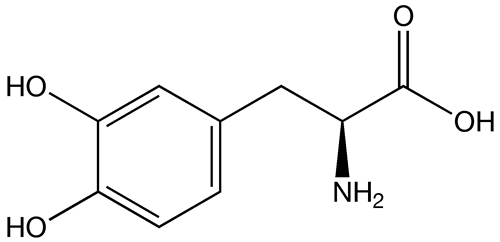Study Shows Gut Bacteria Could Be Reason for Side Effect of Drug for Parkinson's Treatment
Study findings recently showed that bacteria found in the small intestine could "deaminate levodopa," the drug used for treating Parkinson's disease. Deaminate means, as explained in the study, "to remove an NH2 group."
In addition, microbial processing of the drugs' unabsorbed fractions leads to a metabolite that decreases gut motility. These results were explained by the University of Groningen scientists in the BMC Biology journal and came out early today.
As indicated in the study, since Parkinson's is linked to constipation, the drug's processing by gut bacteria "may worsen gastrointestinal complications."
Patients with Parkinson's disease undergo treatment through levodopa, which is converted into the brain's neurotransmitter dopamine.
Levodopa, though not all of it, is absorbed in the small intestine. Specifically, eight to 10 percent of it travels further to the gut's more distal part, and this percentage rises along with age, as well as the drug dosage administered.
According to research, it may encounter microbial species like "Clostridium sporogenes," which "can deaminate aromatic amino acids in the gut's distal part.
Deamination Activity Demonstrated
According to the University of Groningen Microbiology assistant professor, Sarah El Aidy, in 2019, other researchers demonstrated the deamination activity of this bacterium on aromatic amino acids.
Al Aidy already knew that levodopa's chemical structure is the same as that of the aroma amino acid tyrosine. The assistant professor said such a finding proposed that "the bacterium could metabolize levodopa, which may impact the intestinal motility of people who have Parkinson's Disease.
Research by El Aidy and her research team exposed that the bacterium C. sporogenes indeed metabolizes levodopa into "3-(3,4-dihydroxy phenyl) propionic acid (DHPPA)."
The assistant professor explained, this particular process engages four steps, three of which had already been previously identified. Nonetheless, the study authors uncovered the first step, which is intermediated by "a transaminase enzyme."
DON'T MISS THIS: Coffee May Stop the Occurrence of Irregular Heartbeats, Research Says
Levodopa Metabolite Decreases Cut Contractions
Next to the 4-step process, the team examined if DHPPA has an impact on the distal small bowel's motility through the use of an ex vivo model system for gut motility.
Gut motility was induced through the addition of acetylcholine, after which the researchers added DHPPA. As a result, within just five minutes, it reduced "the motility by 69 percent, increasing to 73 percent about 10 to 15 minutes later."
Clearly, the result showed the levodopa metabolite could decrease gut contractions, which could result in constipation.
To test if such findings are significant to patients with Parkinson's disease, Sebastian van Kessel, a PhD student in the research team of El Aidy, examined the stool samples of patients for the presence of DHPPA.
Since it is produced as coffee and fruits' breakdown product, the research team compared samples from patients with individuals from healthy controls with a similar diet.
The study finding presented considerably higher levels of DHPPA in the stool samples of patients with Parkinson's disease and were given levodopa for a treatment.
To validate that this metabolite was caused by the presence and activity of the gut bacterium C. sporogenes or other gut bacteria with the capability of "anaerobic deamination, bacteria from stool samples were cultured and fed" with the predecessor of DHPPA. More so, this study found that the bacteria could, indeed, metabolize levodopa for the production of DHPPA.
IN CASE YOU MISSED IT: Chocolate Cake for Breakfast to Lose Weight? Here's What You Need to Know
Check out more news and information on Parkinson's Disease on MD News Daily.
Oct 20, 2020 06:00 AM EDT






